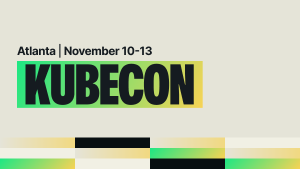We know you’re working hard. You don’t have time to sift through marketing announcements to understand the latest features and changes. In addition to What’s New, we wanted another way to ensure you and your teams stay informed about the newest and most essential New Relic One changes and features. Thus, the Nerdlog was born.
Every Thursday at noon PT (8 p.m. UTC) on Twitch you can learn about the latest New Relic observability features from the people who built them, get resources and step-by-step instructions, and engage directly with New Relic product managers and engineers to provide feedback and ask questions. Missed last week’s Nerdlog episode? Read the recap below.
Reduce noise with linked incidents via the new ServiceNow integration
Senior Product Manager Shachar Brenner explored how you can keep your correlated issues in sync with their linked incidents in ServiceNow to reduce noise and increase context.
Using ServiceNow as a destination to push violation data into new ServiceNow incident tickets, Shachar showcased how you can respond to incidents faster and reduce the toil of managing incidents across multiple systems and tools.
To get started sending data to ServiceNow, follow these instructions to configure Incident Intelligence or go directly to New Relic One to add a destination.
Optimize speed, security, and costs with the New Relic Snowflake integration
Next, Senior Solutions Consultant Daniel Fitzgerald joined us to chat about how the New Relic Snowflake integration can help your teams optimize their Snowflake performance, security, and costs—whether that’s expensive queries, users running many queries, or warehouses that contribute the most to your bill.
Using New Relic Alerts and NRQL queries, Daniel showed us how you can use New Relic to monitor and alert on custom Snowflake data in real time to optimize costs and help detect and resolve warehouse performance issues and potential security issues.
To set up the Snowflake integration, follow the instructions on GitHub. If you don’t have an existing New Relic account, sign up for free today.
Use k6 load testing to manage performance in production
Finally, Solutions Architect Gary Spencer showed us how to make a load test successful, run load testing in production, find performance bottlenecks before going live, and interpret dashboards to accurately analyze load testing data.
Using k6 to send telemetry data to New Relic through the New Relic StatsD integration, Gary showcased how you can visualize and share k6 performance data, alongside your real user data and server-side performance data, in New Relic dashboards. You can also compare load impact with system performance and alert on metrics.
For more resources about k6 load testing and instructions on how to get started, check out the GitHub repo. You can also watch this 5-minute video. Interested in more performance management? See how we managed infrastructure projects and metrics with ZenHub.
Subscribe to our Nerdlog emails to get weekly updates about the latest features and releases from the people who built them. Join the Nerdlog discussion live every Thursday at 12 p.m. PT (8 p.m. UTC) on Twitch or follow along in What’s New, and our other Nerdlog Roundups.
If you're not a New Relic customer, sign up for your free account today.
이 블로그에 표현된 견해는 저자의 견해이며 반드시 New Relic의 견해를 반영하는 것은 아닙니다. 저자가 제공하는 모든 솔루션은 환경에 따라 다르며 New Relic에서 제공하는 상용 솔루션이나 지원의 일부가 아닙니다. 이 블로그 게시물과 관련된 질문 및 지원이 필요한 경우 Explorers Hub(discuss.newrelic.com)에서만 참여하십시오. 이 블로그에는 타사 사이트의 콘텐츠에 대한 링크가 포함될 수 있습니다. 이러한 링크를 제공함으로써 New Relic은 해당 사이트에서 사용할 수 있는 정보, 보기 또는 제품을 채택, 보증, 승인 또는 보증하지 않습니다.



